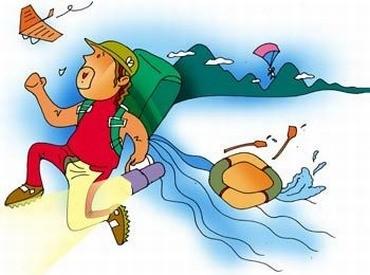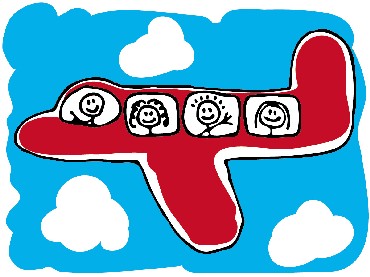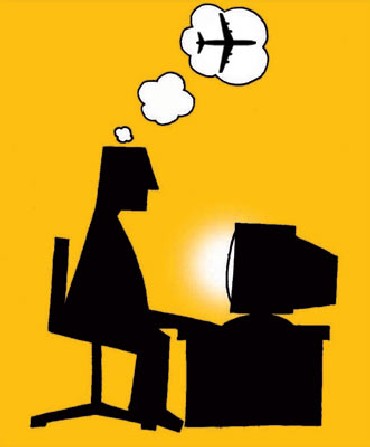Photographs: Reuters Ruchika Chitravanshi in New Delhi
With the slowdown blues hitting the travel appetite of people world over, India has emerged to be the go-to market for countries like Canada, Germany, New Zealand, Australia, the United Kingdom, the United States -- which have started hard-selling themselves as the perfect destinations over the past few months.
"We are concerned about the turnout from Europe, UK and US. As far as India is concerned, the country is expecting a growth of 10 per cent this year. India, China and Brazil are the most important markets for us this year," said Derek Galpin, managing director (India & China), Canadian Tourism Commission. Canada has stepped up its marketing initiatives in India this year and has roped in Bollywood actor Akshay Kumar as its brand ambassador here.
The country is investing Canadian dollar 2.83 million in 2012 in marketing campaigns.
. . .
Slowdown? Not a hurdle for Indian travellers!
Photographs: Reuters
According to a study conducted by Germany National Tourism Office (GNTO) to understand the Indian traveller closely, despite the sharp fall of the rupee against the US dollar, a large number of Indians will still continue with vacationing.
The study found that 59 per cent of Indian outbound travellers remain crisis resistant as they will not have any influence on their travel plans, while 42 per cent of the Indian outbound travellers remain crisis-sensitive.
"The fact that Indians are continuing with budget holidays every year is making India a hugely engaging market for Germany. And this is probably what contributes to India becoming one of the fastest-growing outbound travel markets in the world. Our focus is on increasing the overnights from India to Germany for leisure and change the perception people have that Germany is only a business destination," said Romit Theophilus, director sales and marketing, GNTO.
. . .
Slowdown? Not a hurdle for Indian travellers!
Photographs: Reuters
The rapidly increasing outbound travel market of India growing at the back of a burgeoning aspirational middle class has inspired the West to grab a share of the market pie here.
For instance, average spending by Indian visitors to Japan is 177,315 yen, which is the third highest spending followed by France (232,668 yen) and Russia (223,052 yen).
"India is one of the 15 focus markets for Japan National Tourism Organisation (JNTO). In 2011, JNTO has also made its presence felt in the Indian market for the first time. We are putting in place a sustained promotional campaign for Japan in India and are very optimistic and hope to achieve our arrival targets," said Motonari Adachi, executive director of Japan National Tourism Organization (JNTO).
. . .
Slowdown? Not a hurdle for Indian travellers!
Photographs: Reuters
In 2010, Japan received approximately 70,000 visitors from India -- of which 65 per cent were travelling on business. In 2012 the country is targeting over 100,000 visitors from India.
Though the Indian economy has been affected by the dollar fluctuation, travel has now become a yearly decision stemming from the desire to experience the new.
Besides, the booming meeting, incentives, conventions and events (MICE) market has also boosted the outbound tourism market. Even in the face of downturn India has been a growth market for countries like New Zealand, USA, etc.
. . .
Slowdown? Not a hurdle for Indian travellers!
Photographs: Reuters
In 2010, the US had 650,000 visitors from India. The US travel association predicted that the Indian market will double even during the downturn.
"The average length of the stay for Indians is 20 nights which is one of the longest of any of our international market. We are also seeing an increase in the number of people coming and staying in hotels," said Joe D'Alessandro, president and chief executive officer, San Francisco Travel Association.







article